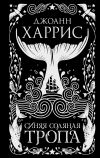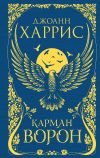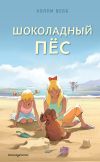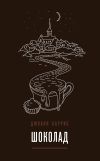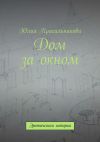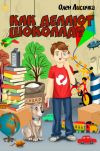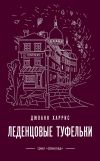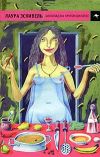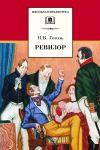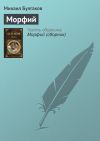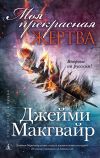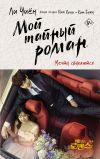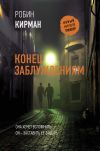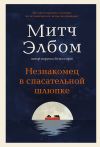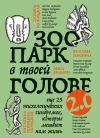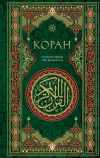Текст книги "Шоколад / Chocolat"
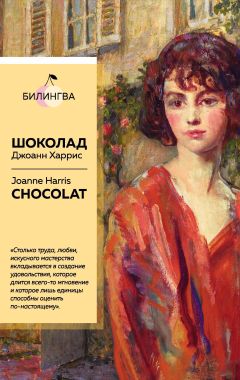
Автор книги: Джоанн Харрис
Жанр: Современная зарубежная литература, Современная проза
Возрастные ограничения: +16
сообщить о неприемлемом содержимом
Текущая страница: 3 (всего у книги 38 страниц) [доступный отрывок для чтения: 12 страниц]
7
Sunday, February 16
My mother was a witch. at least, that’s what she called herself, falling so many times into the game of believing herself that at the end there was no telling fake from fact. Armande Voizin reminds me of her in some ways; the bright, wicked eyes, the long hair which must have been glossy black in her youth, the– blend of wistfulness and cynicism. From her I learned what shaped me. The art of turning bad luck into good. The forking of the fingers to divert the path of malchance. The sewing of a sachet, brewing of a draught, the conviction that a spider brings good luck before midnight and bad luck after. Most of all she gave me her love of new places, the gypsy wanderlust which took us all over Europe and further; a year in Budapest, another in Prague, six months in Rome, four in Athens, then across the Alps to Monaco, along the coast, Cannes, Marseille, Barcelona… By my eighteenth year I had lost count of the cities in which we had lived, the languages we had spoken. Jobs were as varied; waitressing, interpreting, car repair. Sometimes we escaped from the windows of cheap overnight hotels without paying the bill. We rode trains without tickets, forged work permits, crossed borders illicitly. We were deported countless times. Twice my mother was arrested, but released without charge. Our names changed as we moved, drifting from one regional variant to another; Yanne, Jeanne, Johanne, Giovanna, Anne, Anouchka. Like thieves we were perpetually on the run, converting the unwieldy ballast of life into francs, pounds, kroner, dollars, as we fled where the wind took us.
Don’t think I suffered; life was a fine adventure for those years. We had each other, my mother and I. I never felt the need for a father. My friends were countless. And yet it must have preyed upon her sometimes, the lack of permanence, the need always to contrive. Still we raced faster as the years wore on, staying a month, two at the most, then moving on like fugitives racing the sunset. It took me some years to understand that it was death we fled.
She was forty. It was cancer. She’d known for some time, she told me, but recently… No, there was to be no hospital. No hospital, did I understand? There were months, years left in her and she wanted to see America: New York, the Florida Everglades. We were moving almost every day now, Mother reading the cards at night when she thought I was asleep. We boarded a cruiser from Lisbon, both of us working in the kitchens. Finishing at two or three every morning, we rose at dawn. Every night the cards, slippery to the touch with age and respectful handling, were laid out on the bunk beside her. She whispered their names to herself, sinking deeper every day into the mazy confusion which would eventually claim her altogether.
Ten of Swords, death. Three of Swords, death. Two of Swords, death. The Chariot. Death.
The Chariot turned out to be a New York cab one summer evening as we shopped for groceries in the busy Chinatown streets. It was better than cancer, in any case.
When my daughter was born nine months later I called her after both of us. It seemed appropriate. Her father never knew her – nor am I sure which one he was in the wilting daisy-chain of my brief encounters. It doesn’t matter. I could have peeled an apple at midnight and thrown the rind over my shoulder to know his initial, but I never cared enough to do it. Too much ballast slows us down.
And yet… Since I left New York, haven’t the winds blown less hard, less often? Hasn’t there been a kind of wrench every time we leave a place, a kind of regret? I think there has. Twenty-five years, and at last the spring has begun to grow tired, just as my mother grew tired in the final years. I find myself looking at the sun and wondering what it would be like to see it rise above the same horizon for five – maybe ten, maybe twenty – years: The thought fills me with a strange dizziness, a feeling of fear and longing. And Anouk, my little stranger? I see the brave adventure we lived for so long in a different light now that I am the mother. I see myself as I was, the brown girl with the long uncombed hair, wearing cast-off charity-shop clothing, learning maths the hard way, geography the hard way. How much bread for two francs? How far will a fifty-mark rail ticket take us? – and I do not want it for her. Perhaps this is why we have stayed in France for the last five years. For the first time in my life, I have a bank account. I have a trade.
My mother would have despised all this. And yet perhaps she would have envied me too. Forget yourself if you can, she would have told me. Forget who you are. For as long as you am bear it. But one day, my girl, one day it will catch you. I know.
I opened as usual today. For the morning only – I’11 allow myself a half-day with Anouk this afternoon – but it’s Mass this morning and there will be people in the square. February has reasserted its drab self and now it is raining; a freezing, gritty rain which slicks the paving and colours the sky the shade of old pewter. Anouk reads a book of nursery rhymes behind the counter and keeps an eye on the door for me as I prepare a batch of mendiants in the kitchen. These are my own favourites – thus named because they were sold by beggars and gypsies years ago biscuit-sized discs of dark, milk or white chocolate upon which have been scattered lemon-rind, almonds and plump Malaga raisins. Anouk likes the white ones, though I prefer the dark, made with the finest 70 per cent couverture… Bitter-smooth on the tongue with the taste of the secret tropics. My mother would have despised this, too. And yet this is also a kind of magic.
Since Friday I have fitted a set of bar stools next to the counter of La Praline. Now it looks a little like the diners we used to visit in New York, red – leather seats and chrome stems, cheerily kitsch. The walls are a bright daffodil colour. Poitou’s old orange armchair lolls cheerily in one corner. A menu stands to the left, hand-lettered and coloured by Anouk in shades of orange and red:
chocolat chaud 5f
chocolat cake 10f
I baked a cake last night, and the hot chocolate is standing in a pot on the hob, awaiting my first customer. I make sure that a similar menu is visible from the window and I wait.
Mass comes and goes. I watch the passers-by, morose beneath the freezing drizzle. My door, slightly open, emits a hot scent of baking and sweetness. I catch a number of longing glances at the source of this, but a flick of the eye backwards, a shrugging of the shoulders, a twist of the mouth which may be resolve or simply temper, and they are gone, leaning into the wind with rounded, miserable shoulders, as if an angel with a flaming sword were standing at the door to bar their entry.
Time, I tell myself. This kind of thing takes time.
But all the same, a kind of impatience, almost anger, penetrates me. What is wrong with these people? Why do they not come? Ten o’clock sounds, then eleven. I can see people going into the bakery opposite and coming out again with loaves tucked under their arms. The rain stops, though the sky remains grim. Eleven-thirty. The few people who still linger in the square turn homewards to prepare the Sunday meal. A boy with a dog skirts the corner of the church, carefully avoiding the dripping guttering. He walks past with barely a glance.
Damn them. Just when I thought I was beginning to get through. Why do they not come? Can they not see, not smell? What else do I have to do?
Anouk, always sensitive to my moods, comes to hug me.
“Maman, don’t cry.”
I am not crying. I never cry. Her hair tickles my face, and I feel suddenly dizzy with the fear that one day I might lose her.
“It isn’t your fault. We tried. We did everything right.”
True enough. Even to the red ribbons around the door, the sachets of cedar and lavender to repel bad influences. I kiss her head. There is moisture on my face. Something, perhaps the bittersweet aroma of the chocolate vapour, stings my eyes.
“It’s all right, Cherie. What they do shouldn’t affect us. We can at least have a drink to cheer ourselves up.”
We perch on our stools like New York barflies, a cup of chocolate each. Anouk has hers with creme Chantillyand chocolate curls; I drink mine hot and black, stronger than espresso. We close our eyes in the fragrant steam and see them coming – two; three, a dozen at a time, their faces lighting up, sitting beside us, their hard, indifferent faces melting into expressions of welcome and delight. I open my eyes quickly and Anouk is standing by the door. For a second I can see Pantoufle perched on her shoulder, whiskers twitching. The light behind her seems warmer somehow; altered. Alluring.
I jump to my feet.
“Please. Don’t do that.”
She gives me one of her darkling glances.
“I was only trying to help…”
“Please.”
For a second she faces me out, her face set stubbornly. Glamours swim between us like golden smoke. It would be so easy, she tells me with her eyes, so easy, like invisible fingers stroking, inaudible voices coaxing the people in…
“We can’t. We shouldn’t.” I try to explain to her.
It sets us apart. It makes us different. If we are to stay we must be as like them as possible. Pantoufle looks up at me in appeal, a whiskery blur against the golden shadows. Deliberately I close my eyes against him, and when I open them again, he is gone.
“It’s all right,” I tell Anouk firmly. “We’ll be all right. We can wait.”
And finally, at twelve-thirty, someone comes.
Anouk saw him first -
“Maman!” but I was on my feet at once. It was Reynaud, one hand shielding his face from the dripping canvas of the awning, the other hesitating at the door handle. His pale face was serene, but there was something in his eyes… a furtive satisfaction. I somehow understood he was not a customer. The bell tangled as he entered, but he did not walk up to the counter. Instead he remained in the doorway, the wind blowing the folds of his soutane into the shop like the wings of a black bird.
“Monsieur.” I saw him eye the red ribbons with mistrust. “Can I help you? I’m sure I know your favourites.”
I lapsed into my sales banter automatically, but it is untrue. I have no idea of this man’s tastes. He is a complete blank to me, a man-shaped darkness cut into the air. I feel no point of contact with him, and my smile broke on him like a wave on a rock. Reynaud gave me a narrow look of contempt.
“I doubt that.”
His voice was low and pleasant, but I sensed dislike behind the professional tones. I recalled Armande Voizin’s words – I hear our M’sieur le Cure already has it in for you. Why? An instinctive mistrust of unbelievers? Or can there be more? Beneath the counter I forked my fingers at him in secret.
“I wasn’t expecting you to be open today.”
He is more sure of himself now he thinks he knows us. His small, tight smile is like an oyster, milky-white at the edges and sharp as a razor.
“On a Sunday, you mean?”
I was at my most innocent.
“I thought I might catch the rush at the end of Mass:”
The tiny gibe failed to sting him.
“On the first Sunday of Lent?”
He sounded amused, but beneath the amusement, there was disdain. “I shouldn’t think so. Lansquenet folk are simple folk, Madame Rocher,” he told me. “Devout folk.” He stressed the word gently, politely.
“It’s Mademoiselle Rocher.”
Small victory, but enough to break his stride. His eyes flicked towards Anouk who was still sitting at the counter with the tall chocolate-glass in one hand. Her mouth was smeared with frothy chocolate, and I felt it again like the sudden sting of a concealed nettle – the panic, the irrational terror of losing her. But to whom? I shook the thought with growing anger. To him? Let him try.
“Of course,” he replied smoothly. “Mademoiselle Rocher. I do apologize.”
I smiled sweetly at his disapproval. Something in me continued to court it, perversely; my voice, a shade too loud, took on a ring of vulgar self-confidence to hide my fear.
“It’s so nice to meet someone in these rural parts who understands.”
I flashed him my hardest, brightest smile.
“I mean, in the city, where we used to live, no-one gave us a thought. But here…”
I managed to look contrite and unrepentant at the same time.
“I mean, it’s absolutely lovely here, and the people have been so helpful… so quaint… But it isn’t Paris, is it?”
Reynaud agreed – with the tiniest of sneers – that it wasn’t.
“It’s quite true what they say about village communities,” I went on. “Everyone wants to know your business! I expect it comes of having so little entertainment,” I explained kindly. “Three shops and a church. I mean-” I broke off with a giggle. “But of course you know all that.”
Reynaud nodded gravely.
“Perhaps you could explain to me, Mademoiselle…”
“Oh, do call me Vianne,” I interrupted.
“… why you decided to move to Lansquenet?” His tone was silken with dislike, his thin mouth more like a closed oyster than ever. “As you say, it’s a little different to Paris: His eyes made it clear that it was a difference entirely in Lansquenet’s favour. ‘A boutique like this’– an elegant hand indicated the shop and its contents with languid indifference – “surely such a specialist shop would be more successful – more appropriate – in a city? I’m sure that in Toulouse or even Agen…”
I knew now why no customers had dared to come this morning. That word – appropriate held all the glacial condemnation of a prophet’s curse.
I forked at him again, savagely, under the counter. Reynaud slapped at the back of his neck, as if an insect had stung him there.
“I don’t think the cities have the franchise on enjoyment,” I snapped. “Everyone needs a little luxury, a little self indulgence from time to time.”
Reynaud did not reply. I suppose he disagreed. I said as much.
“I expect you preached exactly the opposite doctrine in your sermon this morning?” I ventured boldly. Then, as he still did not answer, “Still, I’m sure there’s room enough in this town for both of us. Free enterprise, isn’t that right?”
Looking at his expression I could see he understood the challenge. For a moment I held his gaze, making myself brazen, hateful. Reynaud flinched back from my smile as if I had spat in his face.
Softly,
“Of course.”
Oh, I know his type. We saw them enough, Mother and I, on our chase around Europe. The same polite smiles, the disdain, the indifference. A small coin dropped from the plump hand of a woman outside Rheims’ crowded cathedral; admonishing looks from a group of nuns as a young Vianne leaps to grab it, bare knees scuffing the dusty floor. A black-frocked man in angry, earnest conversation with my mother; she running white-faced from the shadow of the church; squeezing my hand until it hurt… Later I learned she had tried to confess to him. What prompted her to do it? Loneliness, perhaps; the need to talk, to confide in someone who was not a lover. Someone with an understanding face. But didn’t she see? His face, now not so understanding, contorted in angry frustration. It was sin, mortal sin… She should leave the child in the care of good people. If she loved little – what was her name? Anne? If she loved her she must – must make this sacrifice. He knew a convent where she could be cared for. He took her hand, crushing her fingers. Didn’t she love her child? Didn’t she want to be saved? Didn’t she? Didn’t she?
That night my mother wept, rocking me to and fro in her arms. We left Rheims in the morning, more like thieves than ever, she carrying me close like stolen treasure, her eyes hot and furtive.
I understood he had almost convinced her to leave me behind. After that she often asked me if I was happy with her, whether I missed having friends, a home… But however often I told her yes, no, no, however often I kissed her and said I regretted nothing, nothing, a little of the poison remained. For years we ran from the priest, the Black Man, and when his face returned time and again in the cards it would be time to run once more, time to hide from the darkness he had opened in her heart.
And here he is again, just as I thought we had found our place at last, Anouk and I. Standing at the door like the angel at the gate.
Well, this time, I swear I will not run. Whatever he does. However he turns the people of this place against me. His face is as smooth and certain as the turn of an evil card. And he has declared himself my enemy – and I his as clearly as if we had both spoken aloud.
“I’m so glad we understand each other.” My voice is bright and cold.
“And I.”
Something in his eyes, some light where there was none before, alerts me. Amazingly, he is enjoying this, this closing of two enemies for battle; nowhere in his armoured certainty is there room for the thought that he might not win.
He turns to go, very correct, with just the right inclination of the head. Just so. Polite contempt. The barbed and poisonous weapon of the righteous.
“M’sieur le Cure!” For a second he turns back, and I press a small beribboned packet into his hands. “For you. On the house.”
My smile brooks no refusal, and he takes the packet with bemused embarrassment.
“My pleasure.”
He frowns slightly, as if the thought of my pleasure pains him.
“But I don’t really like – ”
“Nonsense.” The tone is brisk, unaswerable. “I’m sure you’ll like these. They just remind me so much of you.”
Behind his calm exterior I think he looks startled. Then he is gone, the little packet white in his hand, into the grey rain. I notice that he does not run for shelter but walks with the same measured tread, not indifferent but with the look of one who relishes even that small discomfort.
I like to think he will eat the chocolates. More probably he will give them away, but I like to think he will at least open them and look… Surely he can spare one glance for the sake of curiosity.
They remind me so much of you.
A dozen of my best huitres de Saint-Malo, those small flat pralines shaped to look like tightly closed oysters.
8
Tuesday, February 18
Fifteen customers yesterday. today, thirty-four. Guillaume was among them; he bought a cornet of florentines and a cup of chocolate. Charly was with him, curling obediently beneath a stool while, from time to time, Guillaume dropped a piece of brown sugar into his expectant, insatiable jaws.
It takes time, Guillaume tells me, for a newcomer to be accepted in Lansquenet. Last Sunday, he says, Cure Reynaud preached such a virulent sermon on the topic of abstinence that the opening of La Celeste Praline that very morning had seemed a direct affront against the Church. Caroline Clairmont – who is beginning another of her diets was especially cutting, saying loudly to her friends in the congregation that it was “Quite shocking, just like stories of Roman decadence, my dears, and if that woman thinks she can just shimmy into town like the Queen of Sheba disgusting the way she flaunts that illegitimate child of hers as if – oh, the chocolates? Nothing special, my dears, and far too pricey.” The general conclusion amongst the ladies was that ‘it’– whatever it was – wouldn’t last. I would be out of town within a fortnight. And yet, the number of my customers has doubled since yesterday, amongst them a number of Madame Clairmont’s cronies, bright-eyed if a little shameful, telling each other it was curiosity, that was all, that all they wanted was to see for themselves.
I know all their favourites. It’s a knack, a professional secret like a fortune-teller reading palms: My mother would have laughed at this waste of my skills, but I have no desire to probe further into their lives than this. I do not want their secrets or their innermost thoughts. Nor do I want their fears or gratitude. A tame alchemist, she would have called me with kindly contempt, working domestic magic when I could have wielded marvels. But I like these people. I like their small and introverted concerns. I can read their eyes, their mouths, so easily: this one with its hint of bitterness will relish my zesty orange twists; this sweet-smiling one the soft-centred apricot hearts; this girl with the windblown hair will love the mendiants; this brisk, cheery woman the chocolate brazils. For Guillaume, the florentines, eaten neatly over a saucer in his tidy bachelor’s house. Narcisse’s appetite for double-chocolate truffles reveals the gentle heart beneath the gruff exterior. Caroline Clairmont will dream of cinder toffee tonight and wake hungry and irritable. And the children… Chocolate curls, white buttons with coloured vermicelli, pains d’epices with gilded edging, marzipan fruits in their nests of ruffled paper, peanut brittle, clusters, cracknels, assorted misshapes in half-kilo boxes… I sell dreams, small comforts, sweet harmless temptations to bring down a multitude of saints crash-crash-crashing amongst the hazels and nougatines.
Is that so bad? Cure Reynaud thinks so, apparently.
“Here, Charly. Here boy.”
Guillaume’s voice is warm when he speaks to his dog, but always a little sad. He bought the animal when his father died, he tells me. That was eighteen years ago. But a dog’s life is shorter than a man’s, and they grew old together.
“It’s here.” He brings my attention to a growth under Charly’s chin. It is about the size of a hen’s egg, gnarled like an elm burr. “It’s growing.” A pause during which the dog stretches luxuriously, one leg pedalling as, his master scratches his belly. “The vet says there’s nothing to be done.”
I begin to understand the look of guilt and love I see in Guillaume’s eyes.
“You wouldn’t put an old man to sleep,” he tells me earnestly. “Not if he still had”– he struggles for words “some quality of life. Charly doesn’t suffer. Not really.”
I nod, aware he is trying to convince himself.
“The drugs keep it under control.”
For the moment. The words ring out unspoken.
“When the time comes, I’ll know.” His eyes are soft and horrified. “I’ll know what to do. I won’t be afraid.”
I top up his chocolate-glass without a word and sprinkle the froth with cocoa powder, but Guillaume is too busy with his dog to see. Charly rolls onto his back, head lolling.
“M’sieur le Cure says animals don’t have souls,” says Guillaume softly. “He says I should put Charly out of his misery.”
“Everything has a soul,” I answer. “That’s what my mother used to tell me. Everything.”
He nods, alone in his circle of fear and guilt.
“What would I do without him?” he asks, face still turned towards the dog, and I understand he has forgotten my presence. “What would I do without you?”
Behind the counter I clench my fist in silent rage. I know that look – fear, guilt, covetousness – I know it well. It is the look on my mother’s face the night of the Black Man. His words – What would I do without you? – are the words she whispered to me all through that miserable night. As I glance into my mirror last thing in the evening, as I awake with the growing fear – knowledge, certainty – that my own daughter is slipping away from me, that I am losing her, that I will lose her if I do not find The Place… it is the look on my own.
I put my arms around Guillaume. For a second he tenses, unused to female contact. Then he relaxes. I can feel the strength of his distress coming from him in waves.
“Vianne,” he says softly. “Vianne.”
“It’s all right to feel this way,” I tell him firmly. “It’s allowed.”
Beneath us, Charly barks his indignation.
We made close to three hundred francs today. For the first time, enough to break even. I told Anouk when she came home from school, but she looked distracted, her bright face unusually still. Her eyes were heavy, dark as the cloudline of an oncoming storm.
I asked her what was wrong.
“It’s Jeannot.” Her voice was toneless. “His mother says he can’t play with me any more.”
I remembered Jeannot as Wolf Suit in the Mardi Gras carnival, a lanky seven-year-old with shaggy hair and a suspicious expression. He and Anouk played together in the square last night, running and shouting arcane war cries, until the light failed. His mother is Joline Drou, one of the two primary teachers, a crony of Caroline Clairmont.
“Oh?” Neutrally. “What does she say?”
“She says I’m a bad influence.” She flicked a dark glance at me. “Because we don’t go to church. Because you opened on Sunday.”
You opened on Sunday.
I looked at her. I wanted to take her in my arms, but her rigid, hostile stance alarmed me. I made my voice very calm.
“And what does Jeannot think?” I asked gently.
“He can’t do anything. She’s always there. Watching.” Anouk’s voice rose shrilly and I guessed she was close to tears. “Why does this always have to happen?” she demanded. “Why don’t I ever-”
She broke off with an effort, her thin chest hitching.
“You have other friends.”
It was true; there had been four or five of them last night, the square ringing with their catcalls and laughter.
“Jeannot’s friends.”
I saw what she meant. Louis Clairmont. Lise Poitou. Hisfriends. Without Jeannot the group would soon disperse. I felt a sudden pang for my daughter, surrounding herself with invisible friends to people the spaces around her. Selfish, to imagine that a mother could fill that space completely. Selfish and blind.
“We could go to church, if that’s what you want.” My voice was gentle. “But you know it wouldn’t change anything.”
Accusingly, “Why not? They don’t believe. They don’t care about God. They just go.”
I smiled then, not without some bitterness. Six years old, and she still manages to surprise me with the depth of her occasional perception.
“That may be true,” I said. “But do you want to be like that?”
A shrug, cynical and indifferent. She shifted her weight from one foot to the other, as if in fear of a lecture. I searched for the words to explain. But all I could think of was the image of my mother’s stricken face as she rocked me and murmured, almost fiercely, What would I do without you? What would I do?
Oh, I taught her all of this long ago; the hypocrisy of the Church, the witch-hunts, the persecution of travellers and people of other faiths. She understands. But the knowledge does not transpose well to everyday life, to the reality of loneliness, to the loss of a friend.
“It’s not fair.”
Her voice was still rebellious, the hostility subdued but not entirely.
Neither was the sack of the Holy Land, nor the burning of Joan of Arc, nor the Spanish Inquisition. But I knew better than to say so. Her features were pinched; intense; any sign of weakness and she would have turned on me.
“You’ll find other friends.”
A weak and comfortless answer. Anouk looked at me with disdain.
“But I wanted this one.”
Her tone was strangely adult, strangely weary as she turned away. Tears swelled her eyelids, but she made no move to come to me for comfort. With a sudden overwhelming clarity I saw her then, the child, the adolescent, the adult, the stranger she would one day become, and I almost cried out in loss and terror, as if our positions had somehow been reversed, she the adult, I the child.
Please! What would I do without you?
But I let her go without a word, aching to hold her but too aware of the wall of privacy slamming down between us. Children are born wild, I know. The best I can hope for is a little tenderness, a seeming docility. Beneath the surface the wildness remains, stark, savage and alien.
She remained virtually silent for the rest of the evening. When I put her to bed she refused her story but stayed awake for hours after I had put out my own light. I heard her from the darkness of my room, walking to and fro, occasionally talking to herself – or to Pantoufle – in fierce staccato bursts too low for me to hear. Much later, when I was sure she was asleep, I crept into her room to switch off the light and found her, curled at the end of her bed, one arm flung wide, head turned at an awkward but absurdly touching angle that tore at my heart. In one hand she clutched a small Plasticine figure. I removed it as I straightened the bedclothes, meaning to return it to Anouk’s toybox. It was still warm from her hand, releasing an unmistakable scent of primary school, of secrets whispered, of poster paint and newsprint and half-forgotten friends.
Six inches long, a stick figure painstakingly rendered, eyes and mouth scratched on with a pin, red thread wound about the waist and something – twigs or dried grass – stuck into the scalp to suggest shaggy brown hair.
There was a letter scratched into the Plasticine-boy’s body, just above the heart; a neat capital J. Beneath it and just close enough to overlap, a letter A.
I replaced the figure softly on the pillow beside her head and left, putting out the light. Some time before dawn she crept into bed with me as she often had when she was a child, and through soft layers of sleep I heard her whisper,
“It’s all right, Maman. I’ll never leave you.” She smelt of salt and baby soap, her hug fierce and warm in the enclosing dark. I rocked her, rocked myself, in sweetness, hugged us both in relief so intense that it was almost pain. “I love you, Maman. I’ll always love you for ever. Don’t cry.”
I wasn’t crying. I never cry.
I slept poorly inside a kaleidoscope of dreams; awoke at dawn with Anouk’s arm across my face and a dreadful, panicky urge to run, to take Anouk and keep on running. How can we live here, how could we have been foolish enough to think he wouldn’t find us even here? The Black Man has many faces, all of them unforgiving, hard and strangely envious. Run, Vianne. Run, Anouk. Forget your small sweet dream and run.
But not this time. We have run too far already, Anouk and I, Mother and I, too far from ourselves.
This is one dream I mean to cling to.
Правообладателям!
Данное произведение размещено по согласованию с ООО "ЛитРес" (20% исходного текста). Если размещение книги нарушает чьи-либо права, то сообщите об этом.Читателям!
Оплатили, но не знаете что делать дальше?
